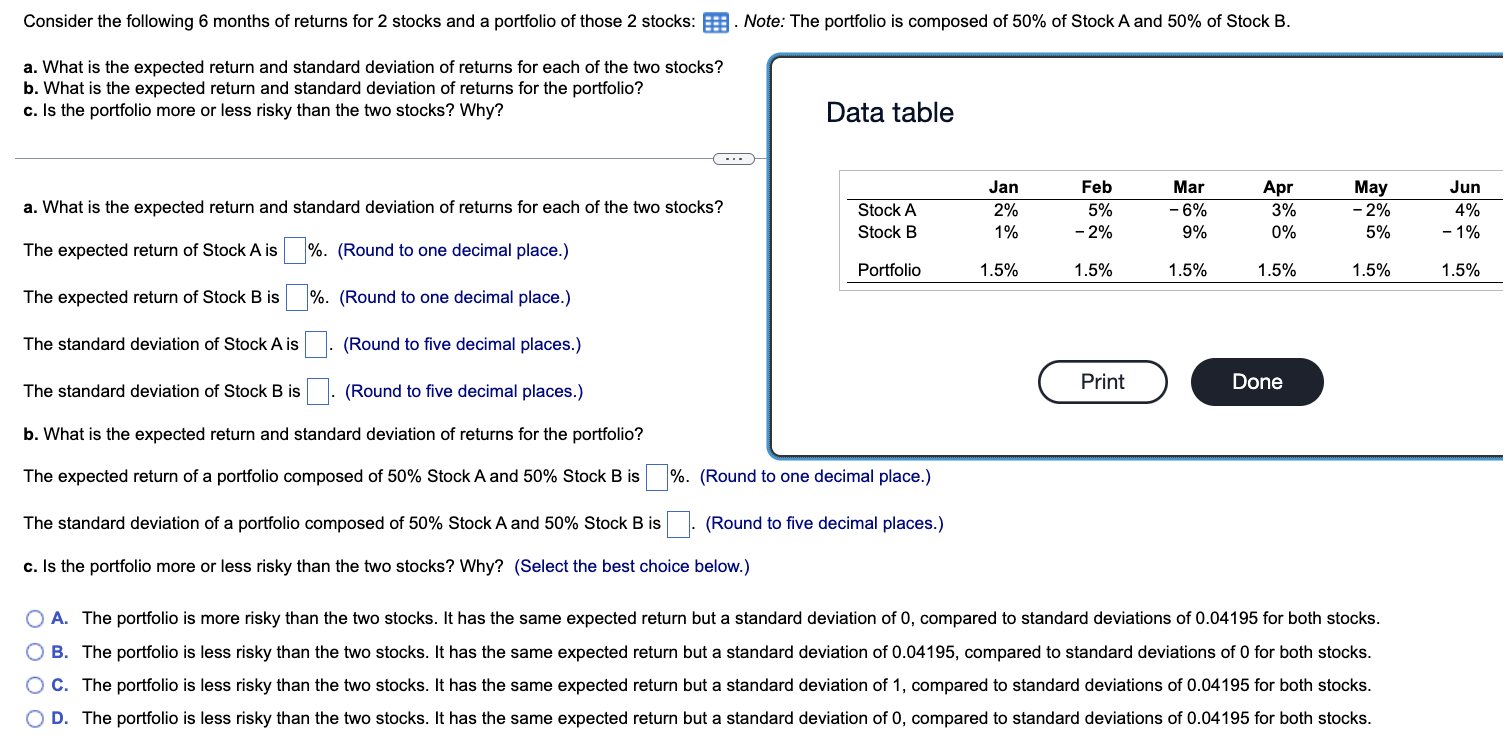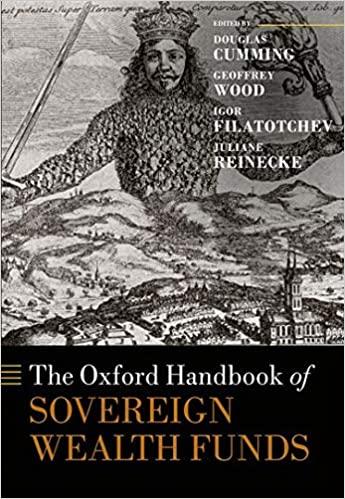
Consider the following 6 months of returns for 2 stocks and a portfolio of those 2 stocks: Note: The portfolio is composed of 50% of Stock A and 50% of Stock B. a. What is the expected return and standard deviation of returns for each of the two stocks? b. What is the expected return and standard deviation of returns for the portfolio? c. Is the portfolio more or less risky than the two stocks? Why? a. What is the expected return and standard deviation of returns for each of the two stocks? The expected return of Stock A is %. (Round to one decimal place.) %. (Round to one decimal place.) (Round to five decimal places.) (Round to five decimal places.) b. What is the expected return and standard deviation of returns for the portfolio? The expected return of a portfolio composed of 50% Stock A and 50% Stock B is The standard deviation of a portfolio composed of 50% Stock A and 50% Stock B is c. Is the portfolio more or less risky than the two stocks? Why? (Select the best choice below.) The expected return of Stock B is The standard deviation of Stock A is The standard deviation of Stock B is Data table Stock A Stock B Portfolio %. (Round to one decimal place.) (Round to five decimal places.) Jan 2% 1% 1.5% Feb 5% - 2% 1.5% Print Mar - 6% 9% 1.5% Apr 3% 0% 1.5% Done May - 2% 5% 1.5% O A. The portfolio is more risky than the two stocks. It has the same expected return but a standard deviation of 0, compared to standard deviations of 0.04195 for both stocks. B. The portfolio is less risky than the two stocks. It has the same expected return but a standard deviation of 0.04195, compared to standard deviations of 0 for both stocks. C. The portfolio is less risky than the two stocks. It has the same expected return but a standard deviation of 1, compared to standard deviations of 0.04195 for both stocks. D. The portfolio is less risky than the two stocks. It has the same expected return but a standard deviation of 0, compared to standard deviations of 0.04195 for both stocks. Jun 4% - 1% 1.5% Consider the following 6 months of returns for 2 stocks and a portfolio of those 2 stocks: Note: The portfolio is composed of 50% of Stock A and 50% of Stock B. a. What is the expected return and standard deviation of returns for each of the two stocks? b. What is the expected return and standard deviation of returns for the portfolio? c. Is the portfolio more or less risky than the two stocks? Why? a. What is the expected return and standard deviation of returns for each of the two stocks? The expected return of Stock A is %. (Round to one decimal place.) %. (Round to one decimal place.) (Round to five decimal places.) (Round to five decimal places.) b. What is the expected return and standard deviation of returns for the portfolio? The expected return of a portfolio composed of 50% Stock A and 50% Stock B is The standard deviation of a portfolio composed of 50% Stock A and 50% Stock B is c. Is the portfolio more or less risky than the two stocks? Why? (Select the best choice below.) The expected return of Stock B is The standard deviation of Stock A is The standard deviation of Stock B is Data table Stock A Stock B Portfolio %. (Round to one decimal place.) (Round to five decimal places.) Jan 2% 1% 1.5% Feb 5% - 2% 1.5% Print Mar - 6% 9% 1.5% Apr 3% 0% 1.5% Done May - 2% 5% 1.5% O A. The portfolio is more risky than the two stocks. It has the same expected return but a standard deviation of 0, compared to standard deviations of 0.04195 for both stocks. B. The portfolio is less risky than the two stocks. It has the same expected return but a standard deviation of 0.04195, compared to standard deviations of 0 for both stocks. C. The portfolio is less risky than the two stocks. It has the same expected return but a standard deviation of 1, compared to standard deviations of 0.04195 for both stocks. D. The portfolio is less risky than the two stocks. It has the same expected return but a standard deviation of 0, compared to standard deviations of 0.04195 for both stocks. Jun 4% - 1% 1.5%







